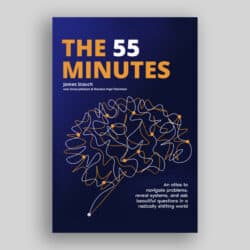by ARTHUR B. C. DRACHE, 1980, Published by Richard DeBoo Limited, Toronto
The second edition of Canadian Tax Treatment of Charities and Charitable Donations has recently been published. Mr. Drache was Chairman of the Charities Study Group of the Department of Finance when the new rules were under consideration and, since entering into private practice, has continued his interest in the field. His insight and views are therefore most useful.
The first edition of the book was published in 1977 shortly after the new income tax rules came into force. It was divided into two parts. Part I- The Tax Treatment of Charities-dealt with an overview of the basic concepts of the taxation of charities, provisions of general application, and the income tax rules applying to charitable organizations, public foundations and private foundations. Part II-The Tax Treatment of Charitable Donations-dealt with the legislative framework applicable to charitable donations, tax planning and fund raising techniques and included a chapter on corporations and charitable donations. In the second edition, Mr. Drache has followed the same general outline, but has been able to expand the commentary to include the benefit of his experience with Revenue Canada as to its policy in administering and enforcing compliance with the rules.
The section of the book dealing with fund raising techniques is especially helpful to those not only in the legal profession, but also to professional advisors, the charities, and those taxpayers who contribute to charities. Some of the topics considered include lotteries, fund raising events, sale of annuities, gifts of residual interest and life insurance policies. The section on heritage property has been expanded to deal with the Cultural Property Export and Import Act. The book also contains a helpful appendix which includes applicable provisions of the Income Tax Act and Regulations, relevant Interpretation Bulletins, Information Circulars and Income Tax Rulings. It also contains exerpts from the Cultural Property and Import Act and copies of various forms which are provided under the Income Tax Act.
The book is written in a very readable style and is highly recommended reading for everyone who advises charities and their donors on income tax matters and fund raising techniques.
New Corporate Philanthropy
FRANK KOCH Few authors have undertaken the task of developing a text on the subject of philanthropy and produced a result of such value to both the “givers” and the “seekers” than Frank Koch in New Corporate Philanthropy. The book does not “attack” the shortcomings of either group but presents factual, usable material for both the givers and the seekers based on sound judgement, extensive experience and keen perception.
Charitable organizations seeking funds will find sound advice on the preparation of proposals, and grantors will find assistance in responding to such proposals. Fund-raisers will recognize the importance of the chapters dealing with the effective management of non-profit organizations, and the role of the corporate executive as Board member. Both chapters contain considerable material which could provide a challenge to non-profit organizations to examine their own methods and practices from the viewpoint of a corporate executive asked to serve on their Board. Administrators of donations budgets will also find assistance in measuring the effectiveness of their activity and in developing new or expanded goals.
The book is topical and useful and details of reference material are complete. Outstanding programs developed by other corporations are reported, and a wealth of documented activities of new and not so new organizations is presented. The book does not present a rigid set of rules, but rather a collection of basic principles and known results, each adaptable to the needs of those who deliver community service, and those who help make the delivery possible.
Mr. Koch is familiar with the important role of business, its management and its Chief Executive Officer in philanthropy, whether the contribution is in cash, time or expertise. It is here that the value of Mr. Koch’s experience, the use of his wide range of contacts, and his knowledge of what has been accomplished by some organizations come together to provide irrefutable evidence of the need for a socially responsible approach to charitable giving. He is conscious of the requirement of a profitable business as a prime requisite to the availability of funds and the ability of the organization to become involved in philanthropy and the business methods based on practice and statistics which are described in the book should be of assistance to those who must justify philanthropy as a benefit to shareholders and employees.
In summary, Koch’s book can be recommended with assurance as an important acquisition for anyone involved with philanthropy. It will greatly assist such persons to measure present performance against that of others and to plan for the future accordingly.
*Reviewed by Margaret Tomlin, Corporate Donations Controller, Simpsons Ltd. since April 1979 also involved with donations program of Hudson’s Bay Co., a member of the Development Fund Committee of the Toronto School of Theology and Campaign Coordinator of the St. Andrew’s Restoration Committee.


